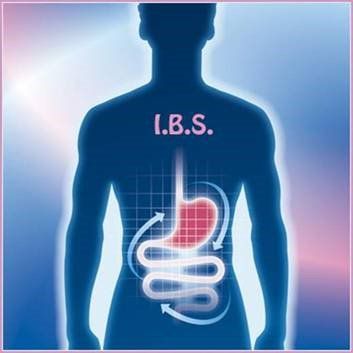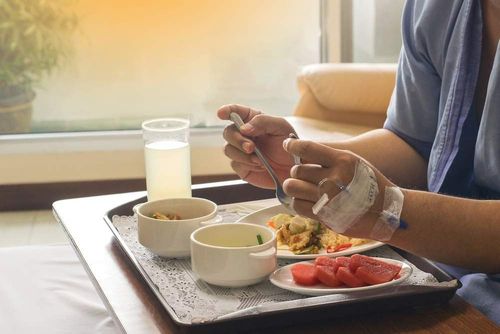This is an automatically translated article.
Some people may feel nervous when going to the doctor or medical examination, which also affects the test results or the patient's health to some extent. Knowing the countermeasures will help the patient feel more comfortable and less anxious about entering the visit.
1. Anxiety during medical examination
Anxiety about going to the doctor or fear of going to the doctor can occur in many patients when performing medical tests. Medical tests are procedures used in the diagnosis, screening, or monitoring of various medical conditions. Some people sometimes feel nervous or uncomfortable about a medical check-up. However, it usually doesn't cause serious problems or symptoms.
In some cases, medical anxiety can turn into a phobia – an anxiety disorder that causes an intense or irrational fear of something that really isn't as dangerous as you think. This fear can also cause physical symptoms such as shortness of breath, heart palpitations, or tremors.
2. Different types of medical tests
Below are the types of medical tests most commonly used today, including:
Body fluid tests: Fluids in your body usually include sweat, urine, saliva, and blood. This medical test will involve taking a sample of the fluid in your body. Imaging tests: These are tests that look inside your body, including ultrasounds, X-rays, and magnetic resonance imaging (MRI). Another type of imaging test is endoscopy, in which a thin, lighted tube with a camera is inserted into the body to provide images of internal organs and systems. other. Biopsy: This is a type of test that takes a small sample of body tissue to check for conditions like cancer and certain other conditions. Measures body functions: These tests help check the functioning of many different organs in your body. Testing may include measuring lung function or the electrical activity of the heart and brain. Genetic testing: Helps check for cells from the bone marrow, skin, or other areas of the body. They are often used to diagnose genetic diseases or determine if you are at risk for a genetic disorder. These medical tests can help provide important information about your health. Most tests present little or no risk to the patient. However, people who have anxiety about going to the doctor or are afraid of going to the doctor may be so concerned about the testing that they avoid them altogether. This can actually make their health dangerous or worse.

Những xét nghiệm kiểm tra y tế có thể giúp cung cấp các thông tin quan trọng về sức khỏe của bạn
3. Types of anxiety during medical examination
Here are the most common types of medical examination anxiety (phobia), including:
Trypanophobia: People with Trypanophobia often feel a fear of injections or needles. This fear can keep them from getting needed tests or medical treatment. It is also especially dangerous for people with chronic conditions that require frequent testing or treatment. Iatrophobia: Many people with Iatrophobia may be afraid of seeing doctors and want to avoid seeing them. This fear can make some mild illnesses serious or even fatal when left untreated. Claustrophobia: This syndrome can affect people in many different ways. You may experience Claustrophobia during an MRI scan. During a magnetic resonance imaging (MRI) scan, you'll be placed inside a wrap-around tubular scanner. The space in the scanner is quite narrow and small, which can create a feeling of fear for people with Claustrophobia syndrome.

Hội chứng sợ tiêm là một trong những loại lo lắng, ám ảnh kiểm tra y tế phổ biến nhất
4. How to deal with medical exam anxiety?
Some relaxation techniques can help reduce anxiety during your medical exam, including:
Deep breathing: You can take 3 slow breaths. Count to 3 for each deep breath, then repeat. Slow down on your deep breaths if you start to feel lightheaded. Counting: You can count slowly in silence from 1 to 10. Imagine: To dispel your anxiety when you go to the doctor, close your eyes and visualize a place or image that makes you feel happy. . Stretching: Focus on making your muscles feel relaxed and relaxed. Talk: You can also talk to someone in the medical examination room as it can help distract you and reduce your fear of going to the doctor. If you have syndromes such as Iatrophobia, Trypanophobia or Claustrophobia; Some of the following tips may help you to reduce your specific type of anxiety:
For trypanophobia:
If you don't need to fast or limit your water intake, add plenty of fluids body the day before and the morning before the blood test. This will help keep more fluid in the veins and make it easier to draw blood. Your doctor may suggest that you use a local anesthetic to numb the skin. If you are afraid of needles, close your eyes and turn away during the test. If you have diabetes and need to inject insulin frequently, you can use an alternative that doesn't use a needle, such as a jet needle. For Iatrophobia:
People with this syndrome can reduce their anxiety about going to the doctor by bringing a friend or family member to their testing session for support. You can also bring a book, newspaper or magazine, or anything else that will distract you while you wait for your medical appointment. Use medication to help reduce anxiety. For claustrophobia:
You can ask your doctor to give you a mild sedative before medical examination. Also, ask your doctor about alternatives to traditional MRI scans, such as an open MRI scanner. This type of machine can help you feel less stuffy. Although an open MRI scanner does not provide as good images as a traditional MRI, it can still be useful in diagnosing disease. If you have any medical test concerns, talk to your doctor or mental health professional for support and effective coping strategies.
Please follow the website: Vinmec.com regularly to update many other useful information.
Please dial HOTLINE for more information or register for an appointment HERE. Download MyVinmec app to make appointments faster and to manage your bookings easily.
Reference source: medlineplus.gov












